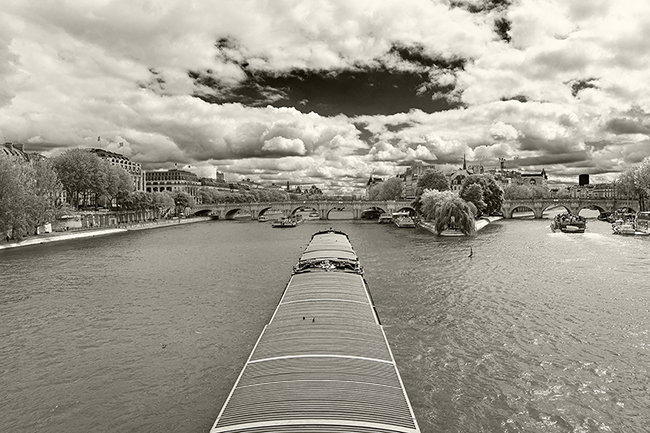Dancho Atanasov stands out in fine art photography, a field he transforms with his abstract and surreal images. Through his platform, Art of Dancho, Atanasov challenges traditional notions of photography, pushing viewers to look beyond realism. His photos evoke a dreamlike quality, prompting a visceral response from audiences, who often find themselves lingering on each image, interpreting the underlying emotions and ideas.

Atanasov’s journey began with a deep interest in visual storytelling, driven by his fascination with surrealism and expressionism. Early on, he experimented with various art forms but found a unique resonance in photography. Here, he discovered the freedom to manipulate reality, stepping away from literal representation and embracing the abstract. This choice became pivotal as he transitioned from traditional photography to a fine art approach, where imagination reigned over reality. His work transports viewers into alternate dimensions—places filled with ambiguity, wonder, and a profound sense of introspection.
The defining element of Atanasov’s photography is his abstract aesthetic, which remains distinct in a world saturated with conventional imagery. By isolating elements, focusing on geometric shapes, and manipulating light and shadow, Atanasov creates compositions that challenge viewers’ perception of reality. His work often integrates natural and human-made aspects, blending them in ways that spark curiosity. His careful use of distortion and reflection adds an otherworldly quality, encouraging audiences to suspend disbelief. These abstract compositions evoke emotion, transcending traditional photographic storytelling.
Color, in Atanasov’s work, plays an equally vital role. He skillfully alternates between bold, saturated tones and more subdued hues to convey specific emotional undertones. In one photo, vibrant colors may evoke a sense of urgency or passion; in another, muted shades inspire calm or contemplation. This deliberate approach to color not only captures attention but also sets a mood, allowing viewers to connect with his work on an emotional level.
Atanasov’s work is deeply rooted in conceptual storytelling, with each piece intended to provoke thought and encourage interpretation. His images invite viewers to ponder the relationships between time, space, and human existence, offering more than just aesthetic appeal. In his abstract approach, familiar objects are often twisted and transformed, becoming unrecognizable yet strangely evocative. This method reflects his belief that art should inspire emotion and engage the viewer’s imagination, forming a dialogue between artist and audience. Atanasov’s images are open-ended, encouraging viewers to infuse them with their own interpretations and emotional experiences, creating a unique connection with each piece.
Geometry and composition are central to Atanasov’s approach. He employs patterns, lines, and shapes to guide the viewer’s eye, creating structure within his abstract worlds. His mastery of symmetry and asymmetry serves to create balance, or a lack thereof, bringing different emotions to each photograph. Symmetry can suggest stability, while asymmetry may introduce tension or movement, keeping the viewer engaged. This precise use of geometry provides balance to his fluid elements—such as water, clouds, or organic shapes—lending each composition an emotional resonance.
Perspective in Atanasov’s work further enriches his abstract aesthetic. By employing unconventional angles or altering depth, he plays with scale and dimension, crafting images that seem both alien and familiar. His photographs often evoke a sense of floating, or even falling, blurring boundaries between reality and imagination. This manipulation of space and depth is key to his vision, pulling viewers deeper into each scene and challenging their spatial understanding.
Emotion is at the heart of Atanasov’s photography, though it communicates feelings in subtle, often abstract, ways. His images evoke introspection, wonder, and sometimes awe, as viewers interact with his works personally. This emotional depth distinguishes his art, as it allows each individual to interpret the abstract forms based on personal experience. For some, the images may provoke nostalgia; for others, they may feel like a mirror to their inner emotions. Atanasov’s photography thus becomes a collaborative experience between artist and viewer, with each interpretation adding layers of meaning to his abstract expressions.
Atanasov’s images encourage viewers to question, interpret, and see the world differently, inviting them to explore the endless possibilities of visual storytelling. For those interested in the evolving potential of photography as an art form, Atanasov’s work stands as a reminder of the medium’s conceptual and emotional power.
In summary, Dancho Atanasov’s photography offers a fresh perspective, where abstraction invites introspection, and surreal imagery stirs emotions. His unique vision combines geometry, color, and composition in a way that transforms the ordinary into the extraordinary, challenging us to look beyond appearances and engage with art on a deeply personal level. Through his ongoing work at Art of Dancho, Atanasov continues to expand the boundaries of fine art photography, leaving an enduring impression on all who encounter his abstract, immersive worlds.

